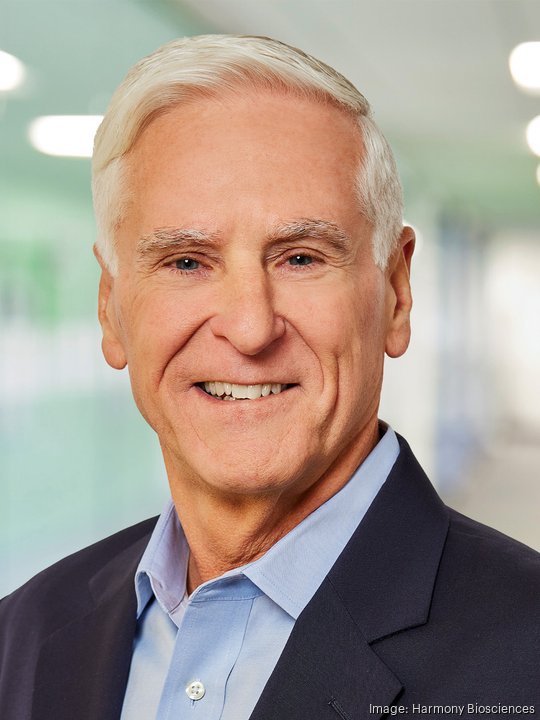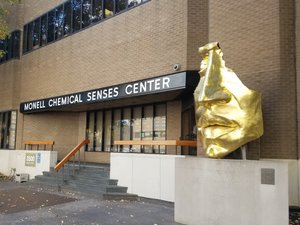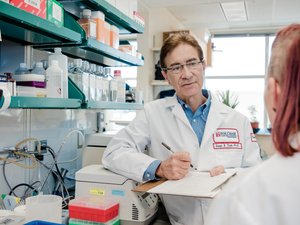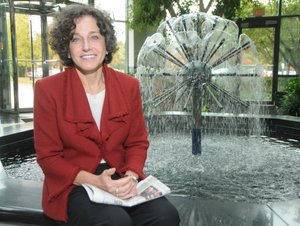
The week's life sciences industry news includes a $26 million gene-editing research grant, a Montgomery County pharma firm's multimillion-dollar stock repurchase program, a medical device company's new product launch, and more.
Here's the roundup:
Penn Medicine and Children’s Hospital of Philadelphia
A team of researchers from the two West Philadelphia institutions specializing in gene editing were awarded a $26 million grant from the National Institutes of Health to support efforts to develop treatments for rare and incurable genetic diseases.
Dr. Kiran Musunuru, a professor of cardiovascular medicine and genetics in Penn’s Perelman School of Medicine, and Dr. William Peranteau, an attending surgeon in the Center for Fetal Diagnosis and Treatment at CHOP, will serve as co-principal investigators for the five-year grant.
The research group is focused on three genetic diseases that impact newborns in the first weeks and months after birth: phenylketonuria, a disorder that causes an amino acid to build up in the body; hereditary tyrosinemia type 1, a disorder characterized by elevated blood levels of the amino acid tyrosine that is a component in the production of brain chemicals; and mucopolysaccharidosis type 1, also known as Hurler's Syndrome, a disease in which the body is missing or does not have enough of an enzyme to break down sugar molecules.
The diseases have no cure, and the most advanced therapies available for each disorder have limitations. Previous studies have demonstrated the possibility of treating the diseases by correcting the disease-causing genetic mutations in patients’ liver cells. The grant will be used by the researchers to develop and study new therapies using CRISPR (an acronym for clustered regularly interspaced short palindromic repeats) gene-editing tools.
“CRISPR technology allows researchers to change just one component in an existing drug to target different diseases — the component that acts as a ‘GPS’ to tell CRISPR where to go in the genome and in which location to make the correction,” Musunuru said. “Our team is hopeful that this gene editing approach could crack the code around treating these diseases, while showing what’s possible when it comes to developing gene-editing therapies.”

Peranteau said the NIH funds will support the researchers' efforts to develop and validate the safety of new gene therapies that can be given to patients in vivo, meaning directly in the body, so they get the data needed to be able to move experimental treatment into clinical trials.
Harmony Biosciences Holdings
The Plymouth Meeting pharmaceutical company's board of directors authorized a $125 million stock repurchase program.
Harmony (NAADAQ: HRMY) representatives said the timing and amount of any share repurchases under the share repurchase program will be based on factors including the capital needs of the business, alternative investment opportunities, the market price of the company's common stock, and general market conditions.
The program does not obligate Harmony to acquire any particular amount of its common stock.
"Our strong balance sheet and cash generation provides us with the flexibility to return capital to shareholders while continuing to execute on and advance our growth strategy," said Dr. Jeffrey M. Dayno, CEO of Harmony.

Harmony markets Wakix, a treatment for excessive daytime sleepiness associated with narcolepsy. Propelled by Wakix sales, Harmony's profit soared nearly sixfold to $181.5 million last year from $34.6 million in 2021. Sales of Wakix increased 43% in 2022 to $437.9 million, up from $305.4 million the previous year.
Globus Medical
The Audubon-based musculoskeletal medical device manufacturer has launched its second "major" product in the pediatric scoliosis space this year.
The latest product, the Marvel Growing Rod System, is Globus Medical's first product designed specifically for early onset scoliosis — a condition that causes a sideways curve of the spine.
The Marvel system, designed for use in patients under 10 years old, is designed to obtain and maintain correction in the spine while allowing for the growth of pediatric patients with early onset scoliosis. The system's growing rods feature a geared mechanism that provides reliable, efficient lengthening through a 40-millimeter or 60-millimeter expansion range. The lengthening of each rod is achieved through a minimally invasive procedure that requires only a small incision.
Earlier this year, Globus introduced its Reflect scoliosis correction system, a non-fusion growth modulation system for treatment of skeletally immature idiopathic scoliosis patients.
Quick hits
Thomas Scientific of Swedesboro, New Jersey, has finalized its acquisition of Massachusetts-based cleanroom, packaging, and industrial products provider Quintana Supply. Terms of the deal are being kept confidential. … Plymouth Meeting-based Geneos Therapeutics, a biotherapeutics company developing personalized therapeutic cancer vaccines, was nominated for the Prix Galien Startup Award for 2023. The Galien Foundation awards, which will be announced Oct. 26, recognize excellence in scientific innovation to improve the state of human health. … Replimune Group (NASDAQ:REPL) of Woburn, Massachusetts, and Incyte (NASDAQ: INCY) of Wilmington have entered into a clinical trial collaboration and supply agreement to study RP1, Replimune’s lead product anti-cancer candidate, in combination with an Incyte small molecule PD-L1 inhibitor, in patients with cutaneous squamous cell carcinoma and other types of cancer. Under the terms of the deal, Replimune will supply Incyte with RP1 for the study and share equally in the costs of the clinical trial. … West Chester-based Molecular Targeting Technologies and its wholly owned subsidiary, Molecular Theranostic Center of Singapore, have received approval from the Health Sciences Authority (HSA) of Singapore to begin a Phase 1B/2 clinical trial testing the safety and effectiveness of an experimental therapy for nasopharyngeal cancer. The study will be conducted at the National University Cancer Institute Singapore and the National University of Singapore.







